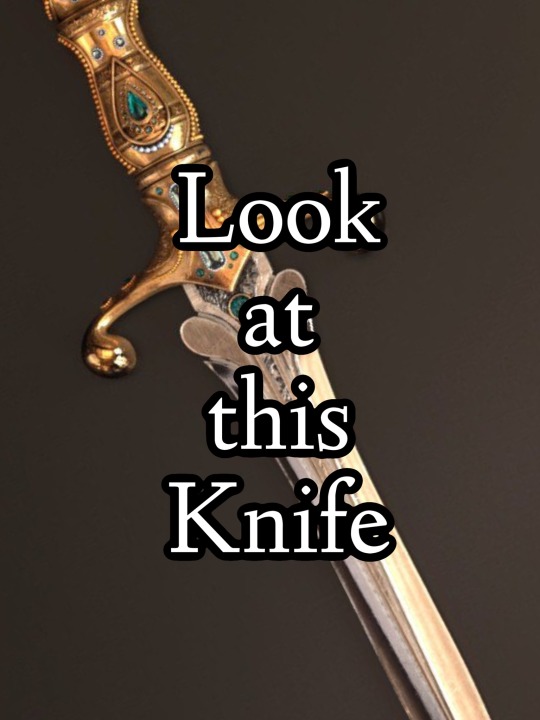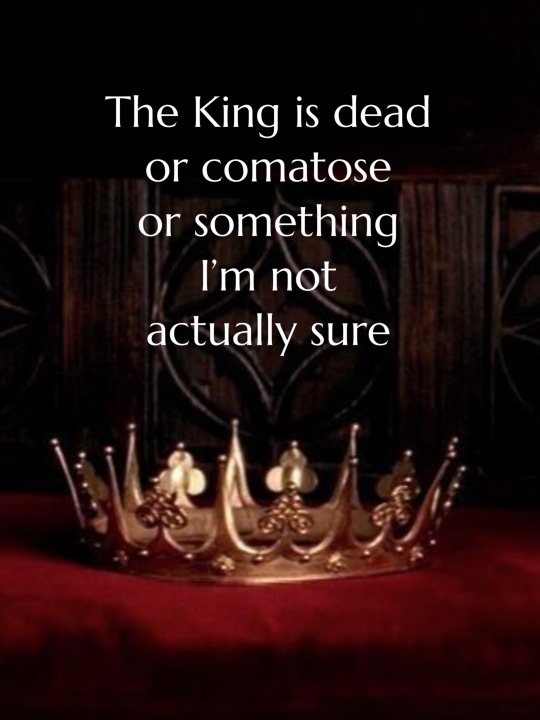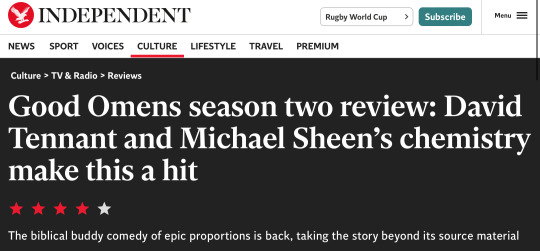#on reading and criticism
Photo

“Educate, Entertain, Scold, Charm”: Merve Emre, interviewed by Lauren Kane, for the New York Review of Books
61 notes
·
View notes
Text




YA novel covers
#ya novels#bookblr#book tumblr#booktube#booktok#booktok critical#books and reading#writeblur#writeblr#writblur#memes#booktok cringe#they all look the same#anti game of thrones#game of thrones critical#serpent and dove critical#serpent and dove#meme#my memes#book memes#books#bookish#book covers#book cover
9K notes
·
View notes
Text
“Monkey Man” was shot and completed in 2021, and Netflix soon after acquired the rights for around $30 million, but it’s been on the shelf for three years and they‘ve all of a sudden decided to get rid of it? What gives?
It turns out, according to an in-the-know source, that it was the portrayal of a fictional right-wing Hindu Nationalist character in the film that worried Netflix about their future dealings in India. And even though they had paid more than twice the production cost, they decided to give the film back to the producers, which is what caused the long delay.
Universal and Peele eventually took a particular liking to the film, so much so that they suggested possible editing changes and delayed the release until what they thought would be the right date.
It’s as simple as that. In the end, it was all about politics and optics for the streaming giant, especially since India has become the current top growth market for Netflix. Co-Founder Reed Hastings has mentioned that a majority of the service's next 100 million subscribers would most likely come from India.
Universal/Jordan Peele's "suggested possible editing changes" in question:



#monkey man#dev patel#jordan peele#film#i have to laugh!!!!#also have read some south asian critics on twitter saying the way it's edited renders the politics of the film vague and incomprehensible#i'm still looking forward to it of course but it's just a shame!!
4K notes
·
View notes
Text
Often when trans women ask me when I'm performing next, and I tell them that it's a queer/trans event, they will tell me that they'd rather not go because they do not feel comfortable or safe in those spaces, that they have been dismissed or belittled at such events before. Even trans women who are dyke- or bisexual- identified often don't feel welcome or relevant in queer/trans spaces. And whenever a trans woman or ally points out aspects about the queer/ trans community that contribute to these feelings of irrelevancy and disrespect—such as the way our community coddles those who support trans-woman-exclusionist events or who make trans-misogynistic comments—we are described as being "divisive." This use of the word "divisive" is particularly telling, as it implies that "queer/trans" represents a uniform movement or community—a "oneness"—rather than an alliance where all voices are respected.
Julia Serano, Whipping Girl. Published 2007.
#reading#just finished it and this from the final chapter was my fav moment and one of the few times i was nodding along#the book is solid in certain places#even incisive at times#but it is so theoretically confused and downright wrong in some of its foundatioms#that i CANNOT recommend it as an introduction to transmisogyny and i can only SUGGEST it as a v critical read#may say more later#whipping girl#transmisogyny
4K notes
·
View notes
Text
I love Zutara as much as the next girlie, but I think people romanticizing Zuko catching Azula's lightning in the Final Agni Kai are doing Zuko's character a massive disservice. He would have done that for anyone. Not just anyone in the Gaang, anyone.
He did it for the division he ended up getting burned over. He did it for his subordinate that was going to fall to his death after the ship was struck by lightning. He did it for Lee, when he was kidnapped by Gao. He did it for Iroh, when he confronted his dad and tried to break him out of prison. He did it for the whole Gaang at the Western Air Temple. He did it for Sokka, Suki, and Hakoda at the Boiling Rock.
His whole character revolves around saving everyone else first. Hell, he tried to save Zhao of all people! There's no way that would have gone well for Zuko if Zhao had actually taken his hand. He always does what he thinks is right first before considering his own safety.
Zuko always saves other people. Even if, especially if, he can't save himself.
#look i love zutara#but zuko has no conception of personal safety#there are better zutara moments in atla!!!!#like i will absolutely still read fanfic that romanticizes that scene#but it still would have happened if literally anyone else had been standing there#zutara#zutara criticism#i'm going to tag this as#anti zutara#just in case someone doesn't want to see a critique of the ship#i'm not really critiquing the ship#but out of an abundance of caution#uh actual antis if you see this: behave yourselves lol#zuko#avatar the last airbender#atla
4K notes
·
View notes
Text

We're not so different, you and I. Part 1, Part 2
From Critical Role C2 E92: Home Is Where the Heart Is
#working on something 👀#it has only taken me 3.5 years to finally properly draw Caleb#ever since reading Yasha's comic I've been inspired to draw this scene#the next part specifically is what I wanted to draw#it's gonna be great#not for these two tho#critical role#crit role#critical role fanart#caleb widogast#yasha nydoorin#cr caleb#cr yasha#cr#cr2#cr campaign 2#the mighty nein#art#khalliys
2K notes
·
View notes
Text

I miss them T^T I miss the blue girlies
#jade draws#critical role#cr2#critical role fanart#beaujester#jester lavorre#beauregard lionett#please please be respectful under this post. i can read tags remember#im giving cr tumblr one last chance whether or not they can be nice on a cr2 ship#anyway. theyre one of the big reason i got into cr and met long time mutuals who some i consider a friend now#if you followed me since c2 days. you know im fixated over them
2K notes
·
View notes
Text

i almost want to do an expression sheet for him so i force myself to expand past his rbf. but its so easy and fun to draw him with one
#essek thelyss#the mighty nein#critical role#critical role fanart#mighty nein#m9#cr fanart#i like the setup of these low stakes sketches same as the fearne one lol#i just get to do a chill sketch adn then color + blend mode until im bored yippie!!#gave him a lot of layers on his outfit bc of one of my favorite shadowgast fics i read recently that will affect how i draw essek forever#in the closet of our discretion by firefright on ao3#REALLY cool worldbuilding through kryn fashion customs#im really excited to draw him in more outfits :]#itseart
1K notes
·
View notes
Text

I mean. I literally do???
#the entirety of pakistani media is a plot by a shady islamist style organization#basically what they say right after this#'news' broadcast#self described gender critical ppl just love racism and western centrism#like im probably one of the ppl for whom 'do you usually read [non western] media??' rhetorical questions is least applicable lmfao
2K notes
·
View notes
Text

Women do not owe you anything. We do not owe you access to our bodies. We do not owe you access to our emotional labour. We do not owe you attraction. We do not owe you acceptance to our spaces or opportunities.
Women do not owe you anything.
#radblr#radical feminism#feminism#terfblr#The male socialisation really jumps out of this one huh#“Who told you that you can say no to men and get away with it?”#terfsafe#gender critical#It's all “you have to” and “you gotta” no I actually don't#“They can and do read trans womens traits as masculine/male” yeah I fucking wonder why jakey maybe it's because you're a man
1K notes
·
View notes
Text
Even the phrase “eat the rich” feels trite. It neatly sums up a tote bag slogan era of anti-capitalism in culture, cutesy shorthand that’s now entirely representative of a watered down, inoffensive type of politics. You could argue that satire born out of this politics is predictable because its targets are predictable: we all know rich people suck and perhaps they don’t necessarily deserve nuance. But the beauty of good satire is in using a scalpel to eviscerate a subject, by having a distinct perspective and striking with precision.
- Patrick Sproull, "Why all “eat the rich” satire looks the same now"
9K notes
·
View notes
Text
“doctor who is well written” if you say so i guess “doctor who proved trans girl magic is real and features the penultimate bestie relationship and david tennant is openly having the time of his life” now this we can’t possibly refute
#doctor who#i’m sure i could find things to criticize about it. in fact there are many. and those who are critiquing it keep up the good work#i just know i looked at david tennant for an hour today and i liked it#and when i read posts that mention pacing my eyes glaze over. what is this pacing you’re talking about
2K notes
·
View notes
Text
Some hints about evaluating scientific studies
Firstly, understand that something being published in a scientific journal (or an academic journal for the social sciences) does not automatically make it true. Publishers profit from publishing novel, eye-catching, surprising research, which means they are more likely to publish positive results than ones that didn't find a connection between given variables. This means that scientists' careers benefit when they get positive results. Certain institutions also benefit from certain findings above others (a committee for research on "obesity" that is funded by a government organisation tasked with ending it, for example, is likely to try to stretch the evidence to find a link between body weight and poor health outcomes). So how do people evaluate scientific studies, especially without being scientists themselves?
Literature reviews
Literature reviews, which aim to assemble and summarise most of the available or influential papers on a given issue, can be a good place to start when trying to research that issue. Typically, scientific studies shouldn't only be evaluated on a case-by-case basis (since even well-designed studies can be contradicted by other, equally well-designed studies), but a full survey of the different results people have gotten should be taken.
Background information and conflicts of interest
Try to find out who funded a given study. Who published the study? What do these people stand to gain from the results of the study being accepted? (For example: you might pay special attention to the experimental design on a study on whether a certain essential oil helps to reverse hair loss that was carried out by a company that sells that oil.)
In theory, many journals call for study authors to declare any conflicts of interest they may have in a special section of the paper. This section should also list funding sources. You might also look up the authors on linkedin or something to find where they're employed; also look into whether another conglomerate owns that company, &c.
Experimental design
If the study involves a survey, have the authors of the paper provided the questions that people were asked, so that you can evaluate them for potential ambiguity or confusing wording? Not being transparent about the exact wording of questions is a sign that a study isn't trustworthy.
What's the sample size? Is it large enough for the claim the study is making to be reasonable? (More on this in the next section.)
Does the experimental design make sense with what the researchers wanted to study? Are the claims that they make in the conclusion section something that could reasonably be proven or suggested by the experiment that they performed?
Does the experimental design "bake in" an assumption of the truth of its hypothesis? (For example, measuring skeletons to argue that they fall into statistically significant size groupings by sex, using skeletons that you sorted into "male" and "female" groups based on their size, is clearly circular).
How was data collected? People might change their answers to a survey, for example, if they have to speak to a person to give them, rather than writing them down anonymously. Self-reported information (such as a survey aiming to figure out average height or average penis size) is also subject to bias. A good study should be transparent about how the authors collected their data, and be clear about how this could have affected their results.
Also regarding surveys: do the categories that the authors have divided respondents into make sense? Are these categories really mutually exclusive? If respondents were asked to sort themselves into categories (e.g., to select their own race or ethnicity), is there any guarantee that they all interpreted the question / the boundaries of these categories the same way? How would this affect the results?
Interpretation of results
Could anything other than the conclusion that the authors came to explain the results of their experiment? For example, a study finding a correlation between two variables and assuming that this means one variable causes the other ("being in a lot of stress causes short stature" or vise versa) could be missing a secret third thing which is in fact causing both of those things (e.g., poverty). Check to make sure that the authors considered other explanations for their findings and ruled them out (for example, by controlling for other variables such as socioeconomic status).
Are the results of the study generalisable to the population that the authors claim they're generalisable to? For example, the results may not be true for the entire population if only cisgender men between the ages of 30 and 40 were tested. Sampling biases can also affect generalisability—if I surveyed my college to try to find out the percentage of women in the total population, you might ask "but is your college sure to have the same percentage of women as the Earth does?"
Statistics
Are the results statistically significant, or are they within expected margins of error?
Many studies provide a p-value (a number between 0 and 1) for their results. In theory, a p-value represents the chance that the study's results could have been achieved by random chance. If you flip a coin ten times (so, your sample size is 10), it's not very odd to get heads six times and tails four times, and you wouldn't accept that as proof that the coin lands on heads more often than tails. The p-value for that result would be high (that is, there's a high chance that the coin appears unfair only because of random chance). On the other hand, if you flip a coin 100,000 times and it lands on heads 60,000 of those times, that's much better evidence that the coin is not a fair one. The p-value would be much lower. Typically, a p-value lower than 0.05 is considered statistically significant.
In practice, there's more than one way to calculate p-values, and so studies sometimes claim p-values that seem absurdly low. A low p-value is not proof of a claim in and of itself. Check to make sure that the authors of the paper also provide the raw data, and not just the p-values; this indicates a concern with other people being able to independently evaluate their results, rather than just trying to get The Best Numbers.
Citations
If the study cites something that seems foundational to their claims or interpretation, try tracing it back to the paper that was cited. Does the source actually claim what the authors of the first study said it did? Does the source provide proof or support for the claim, or does it seem flimsy, like a "common-sense" assumption?
Replication
Check the studies that cite the one you're currently looking at. Has anyone else tried to replicate the study? What were their results?
What if I really, really don't want to read scientific studies?
That's fine. Not everyone is concerned enough with specific scientific questions for regularly reading scientific papers to be reasonable for them. Just keep in mind that not everything in a scientific journal is necessarily true; that profit motives and personal and institutional bias impact results (e.g. when some studies revealed a lack of poor health outcomes for "obesity," and many scientists responded by calling it a "paradox" that needed to be "solved"); and that pop science and journalistic reporting on science are subject to distortions from the same sources.
Try finding commentators on scientific matters whose output you like, and evaluate their writing the same way you would evaluate any other critical writing.
#feel free to add on!#this doesn’t really incorporate the extent of my cynicism wrt to scientific establishment but. lol#reading comprehension#critical thinking
2K notes
·
View notes
Text
returning to the arms of my lover (jstor) oh how i have missed her
#jstor save me…..#it’s kinda a toxic relationship bc we only ever interact when i need something (ideas for my essay)#and she tells me what to think and do and say (she shows me all the clever critical readings)#but it’s beautiful nevertheless
1K notes
·
View notes
Text
I’m starting to wonder if straight people know what a “buddy comedy” is 🤔




#Good Omens#OFMD#Good Omens S2#Good Omens Season 2#Our Flag Means Death#Ineffable Husbands#Blackbonnet#Aziracrow#Gentlebeard#Honestly though aren’t critics supposed to be able to read into this kind of thing? Pathetic
1K notes
·
View notes
Text
Okay. I'm about to say something that's probably going to get me run out of the fandom, but.
I don't actually think Tommy leaving their date early had anything to do with him not wanting to pressure Buck (regardless of what he claimed later). Instead, I think it had everything to do with Tommy being annoyed and no longer into it that evening, and I think that is both okay AND significantly more interesting than taking him at his word later and framing it as some selfless act by a sanitized elder gay shepherd just trying to do right by Buck.
#listen#i LIKE tommy#a lot actually#more than i thought i would#but i also feel like the fandom has created an overly sanitized projection of him as a perfect character who can do no wrong#in a way that makes him so much less interesting than he has the potential to be#this is NOT meant as a criticism of the character#more just an alternative reading i find more interesting#tommy kinard#911 discourse#just in case#unpopular opinion
524 notes
·
View notes